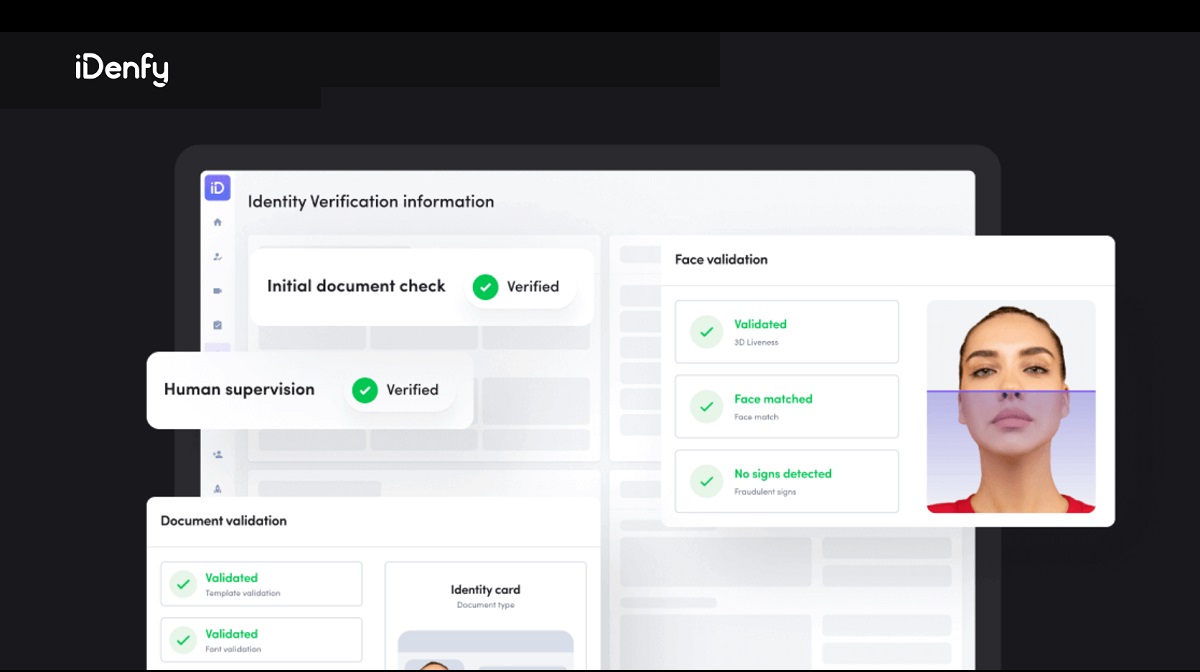Domas Diliunas from iDenfy, a startup that provides identity verification and fraud prevention services for online businesses highlights the importance of ID verification for health startups in the region
In an increasingly digital world, startups in the health sector have emerged as critical players in advancing healthcare services and delivery. While the focus often goes to their innovative medical solutions, the implementation of ID verification has become a non-negotiable aspect of their operations. So, why is ID verification so pivotal, and how are health startups leveraging it for efficient and reliable service delivery?
What is ID Verification?
Before delving into its integration within health startups, let’s take a moment to understand the essence of ID verification. Essentially, ID verification is a process that verifies the identity of an individual by comparing their provided information against authoritative databases. This process helps organizations mitigate fraud, identity theft, and ensure compliance with regulatory standards.
ID Verification and Health Startups: A Synergistic Relationship
In the context of health startups, ID verification plays a key role. It not only ensures secure access to medical data but also establishes trust between the startup and its users. Now, let’s further dissect the role of ID verification in health startups.
Safeguarding Patient Information
In an era where data is the new gold, safeguarding patient information is paramount. This is where ID verification comes in. It acts as the gatekeeper, ensuring only authorized individuals can access sensitive health data. It’s a preventative measure that minimizes the risk of data breaches, potentially saving startups from legal liabilities, financial losses, and reputational damage.
Streamlining User Onboarding
In the digital health landscape, the first interaction a user has with a startup’s platform often sets the tone for their overall experience. ID verification simplifies and expedites the onboarding process, creating a positive first impression. It allows startups to validate a user’s identity quickly, granting them immediate access to the platform’s features and services.
Regulatory Compliance
For health startups, non-compliance with data protection regulations isn’t an option; it’s a fast track to penalties and potential shutdowns. Luckily, ID verification serves as an invaluable tool for startups to meet their regulatory obligations. By implementing robust ID verification, startups can ensure adherence to standards such as the Health Insurance Portability and Accountability Act (HIPAA) in the U.S., or the General Data Protection Regulation (GDPR) in the EU.
Enhancing Trust
Trust is a currency in the health industry. Patients need to trust that their health and personal information is safe. By employing stringent ID verification, health startups demonstrate their commitment to user security, thereby fostering trust and loyalty among their users.
The Future of ID Verification in Health Startups
As technology continues to evolve, we’re seeing new and improved methods of ID verification. Biometrics, facial recognition, and artificial intelligence are fast becoming the future of ID verification in health startups. Such technologies not only enhance security but also streamline the user experience, which is essential for startups vying for a slice of the competitive health sector.
In Conclusion
There’s no question that ID verification is a critical component for startups in the health sector. It’s more than just a security protocol; it’s a means to build trust, facilitate smooth user experiences, and meet regulatory requirements. As advancements in ID verification technology continue, so will the possibilities for improved patient care and safety.
With its robust safeguards, streamlined user experience, regulatory compliance, and trust-building capabilities, ID verification has rightly earned its place in the toolbox of every health startup. Today’s health entrepreneurs recognize this value and are keen to integrate the best ID verification practices for optimal operation and service delivery.
It’s an exciting time for health startups, as ID verification continues to evolve and adapt to the ever-changing digital landscape. After all, in a world where trust and security are paramount, ID verification is the gatekeeper that health startups need to succeed.





